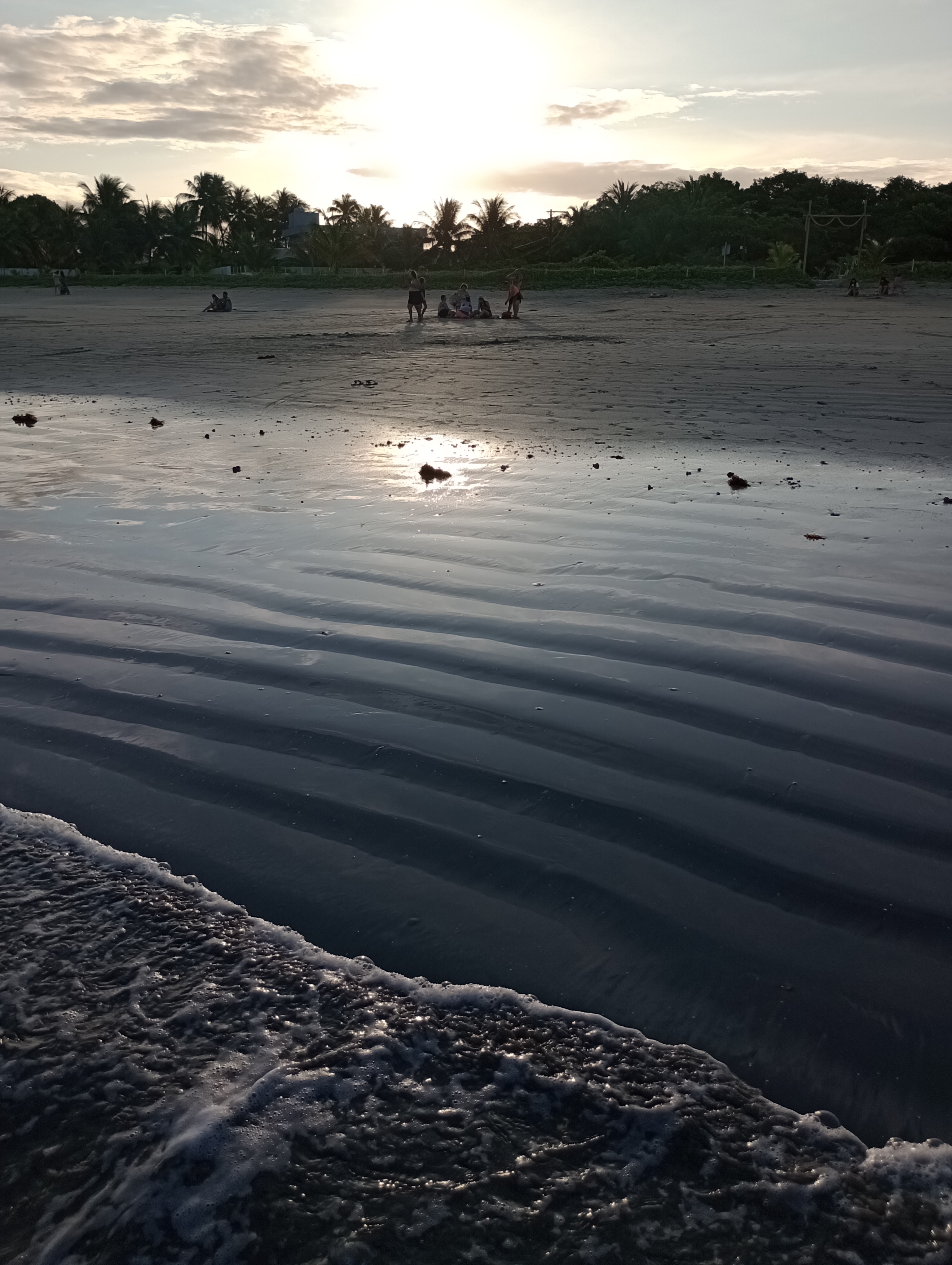Resilience in Tourism MSMEs:
Case of the South Coast region of Jalisco, México.
DOI:
https://doi.org/10.18226/21789061.v16i3p661Keywords:
Tourism; Resilience; MSMEs; South Coast.Abstract
The South Coast is located in the west of the state of Jalisco, Mexico, it is made up of six municipalities, three of them are located on the coastline and three in the mountains, in the coastal municipalities the tourist corridor called Costalegre was created, a project proposed in 1990 by the Ministry of Tourism located between two development poles that are Puerto Vallarta and Manzanillo. The purpose of this document is to identify the behavior of the economic units dedicated to tourist activities in the region, during the period of the health contingency due to Sars-Cov-2, the methodological design applied is quantitative with an exploratory scope of non-experimental design, in addition, a transectional or transversal research and a descriptive study were selected. The findings found considering the numbers reflected in the National Statistical Directory of Economic Units (DENUE) and the impact generated by the pandemic, in terms of mass closure of units, had minimal impact. The main limitation of the research is that it is based on the results generated by the DENUE, which qualifies the research. The implications are that the study universe is made up of establishments that offer services related to tourism activity, originality/value: establish the impact of the pandemic on tourism MSMEs in the South Coast region, determining their degree of resilience based on the results of the DENUE.
References
Benítez-Auríoles, B. (2021). Resiliencia del mercado turístico urbano ante la crisis de la COVID-19. El Caso de Málaga. Revista de Estudios Andaluces, (43), 237-239. Link
Bertella, G. (2022). Discussing tourism during a crisis: resilient reactions and learning paths toward sustainable futures. Scandinavia - Journal of Hospitality and Tourism, 22(2), 144-160. Link
Biggs, D., Hall, M., & Stoeckl, N. (2011). The resilience of formal and informal tourism enterprises to disasters: Reef tourism in Phuket, Thailand. Journal of Sustainable Tourism, 20p5), 645-665. Link
Butler, R. W. (Ed). (2017). Tourism and resilience. CABI.
Calgaro, E., Lloyd, K., & Dominey- Howes, D. (2014). From vulnerability to transformation: a framework for assessing the vulnerability and resilience of tourism destinations. Journal of Sustainable Tourism, 22(3), 341-360. Link
Cellini, R., & Cuccia, T. (2015). The economic resilience of tourism industry in Italy: What the great recession data show. Tourism Management Perspectives, 16, 346-356. Link
Civitaresi, H. M., & Colino, E. (2019). Turismo, transformaciones territoriales y resiliencia: Bariloche como evidencia de una ciudad turística intermedia argentina. Revista de Estudios Latinoamericanos sobre reducción de riesgo de Desastres REDES, 3(1), 41-52. Link
Cochrane, J. (2010). The sphere of tourism resilience. Tourism Recreation Research, 35(2), 173-185. Link
Consejo Nacional Empresarial. (2023). Nuevas oportunidades de negocio para Pymes turísticas en el sureste. Konfio. Link
Cruz, G., Azcué, I., Pérez, A. L., & Varisco, C. (2020). PYMES Turísticas: Aportes conceptuales para su estudio. Mar del Plata, Universidad Nacional de Mar de Plata, Nülan Recurso de Aprendizaje. Link
De Soto, H. (2000). The Mystery of Capital: Why Capitalism Triumphs in the West and Fails Everywhere Else. Basic Books.
Demuner, M. R., Saavedra, M. L., y Cortés, M. (2022). Rendimiento Empresarial, resiliencia e Innovación en Pymes. Investigación Administrativa, 51(130), 1-19. Link
Directorio Estadístico Nacional de Unidades Económicas - DENUE. (2019). Sistema de Consulta. Link
Dewi, C., Rofe, M., Nichols, J., & Izziah, I. (2023). Heritage and the Covid-19 Pandemic: the meaning of visitation. Built Heritage, 7(11). Link
Diario Oficial de la Federación [DOF]. (1990). Declaratoria de Zona de Desarrollo Turístico Prioritario del corredor turístico ecológico denominado Costalegre, en el Estado de Jalisco, con superficie de 577.2 hectáreas. Diario Oficial de la Federación. Link
Diario Oficial de la Federación [DOF]. (1999). Acuerdo de estratificación de empresas micro, pequeñas y medianas. Diario Oficial de la Federación. Link
Fabry, N., & Zeghni S. (2019). Resilience, tourist destinations and governance: an analytical framework. Tourismes et Adaptations, 96-108. Link
Folke, C. (2006). Resilience: the emergence of a perspective for social-ecological systems analyses, Global Environmental Change, 3(16), 253-267. Link
Guadarrama-Tavira, E., & Pacheco-Hernández, E. (2023). Resiliencia organizacional como estrategia de recuperación y continuidad de las Pymes turísticas. RILCO Desarrollo sustentable, Negocios, Emprendimiento y Educación, Año 5, Nº 46. Link
Hernández, R., Fernández, C., & Baptista, M. (2014). Metodología de la Investigación. Mc Graw Hill.
Holladay, P., & Powell, R. (2013). Resident perceptions of social-ecological resilience and the sustainability of community. based tourism development in the Commonwealth of Dominica. Journal of Sustainable Tourism, 21(8), 1188-1211. Link
Ibanescu, B., Eva, M., & Gheorghiu, A. (2020). Questioning the role of tourism as an engine for resilience: the role of accessibility and economic performance. Sustainability, 12(14), 5527. Link
Instituto de Información Estadistica y Geográfica de Jalisco - IIEG. (2019). Link
Lew, A., Pin, T., Chin-Cheng, N., & Tsung-Chiung, W. (2016). Community sustainability and resilience: similarities, differences and indicators. Tourism Geographies, 18(1), 18-27. Link
Luque, R. (2022, 26 de set.). Turismo del futuro: pymes turísticas. Fi group. Link
Luthe, T., & Wyss, R. (2014). Assessing and planning resilience in tourism. Tourism Management, 44, 161-163, Link
Negoc, D., Luc, D., My, H., Hong, H., & O´Mahony, B. (2021). Enhancing resilience in the Covid-19 crisis: lessons from human resource management practices in Vietnam, Current Issues in Tourism, 24(22), 3189-3205. Link
Nuevo, A., Martínez, G., & Puig, M. (2023). Consecuencias y resiliencia del turismo ante el impacto de la pandemia desde una visión de la gestión a escala local para el caso de Málaga. Revista de Estudios Andaluces, (45), 167-189. Link
Octasylva, A. R.P., Yuliati, L. N., Hartoyo, H., & Soehadi, A. (2022). Innovativeness as the Key to MSMEs´ Performances. Sustainability, 14(11), 6429. Link
Peralta, L. (2022). La Recuperación del Turismo como Pilar del Gran Impulso para la Sostenibilidad. CEPAL Publicaciones Unidas. Link
Pérez, J. X. (2003). Las Mipymes Turísticas: cómo comercializar a través de la cooperación. Bogotá, Colombia: Universidad de Externado.
Plan Estatal de Desarrollo Jalisco (2015). Plan de Desarrollo de la Región Costa Sur 2015-2025. Gobierno del Estado de Jalisco. Link
Pololikasshvili, Z. (2022, 05 de dez.). La OMT y Marruecos se asocian para ayudar a 10.000 Mipymes turísticas a digitalizarse. Organización Mundial de Turismo. Link
Rahmafitria, F., Sukmayadi, V., Suryadi, K., & Rosyidie, A., (2021). Disaster management in Indonesian tourist destinations: how institutional roles and community resilience are mediated. Worldwide Hospitality and Tourism Themes, 13(3), 324-339. Link
Rahmanto, A. (2021). Crafting Normalcy: How communication enhances tourist village´s resilience during the Covid-19 Pandemic. Journal Komunikasi: Malaysian Journal Communication, 37(3), 244-256. Link
Ricalde, N. (2018). ¿Qué es la resiliencia de destinos turísticos?. Entorno Turístico. Link
Rutter, M. (1993). Resilience: some conceptual considerations. Journal of Adolescent Health, 14(8), 626-631. Link
Sánchez, E., & Toscano, J. A. (2022). Análisis sobre la gestión estratégica dentro de las Mipymes turísticas mexicanas durante la pandemia Covid-19. Topofilia - Revista de Arquitectura, Urbanismo y Territorios, 15(24), 330-353. Link
Sancho, A., & Veléz, Y. (2009). La resiliencia como metodología para enfrentarse a la crisis del sector turístico. In D. López & J. I. Pulido (Eds.), XIV Congreso AECIT para el Turismo Español. Cambio de paradigma (pp. 39-50). Universitaria Ramón Arses.
Scott, D., De Freitas, C., & Matzarakis, A. (2009). Adaptation in the tourism and recreation sector. In K. L. Ebí, I. Burton, & G. R. McGregor (eds.), Biometeorology for Adaptation to Climate Variability and Change (pp. 171-194). Springer: Dordrecht. Link
Senderovitz, M. (2009). How are SMES defined in Current Research? AGS. Link
Suárez, E. (1993). Resilience, o capacidad de sobreponerse a la adversidad. Revista Medicina y Sociedad, 16(3), 18-22. Link
Traskevich, A., & Fontanari, M. (2021). Tourism potentials in post-Covid-19: the concept of destination resilience for advanced sustainable management in tourism. Tourism Planning & Development, 20(1), 12-36. Link
Tsao, C., & Ni, C. (2016). Vulnerability, resilience, and the adaptive cycle in a crisis-prone tourism community. Tourism Geographies, 18(1), 80-105. Link
Unión Internacional de Telecomunicaciones [UIT]. (2019). Digital transformation and the role of enterprise architecture. Thematic Reports, ITU Publications: El Salvador, Costa Rica y Panamá. Link
Vázquez, V. (2023). Impacto especial de las inundaciones súbitas en la resiliencia turística de Matehuala, San Luis Potosí, México. Cuadernos de Turismo, (51), 163-187. Link
Virgen, C. R., Zepeda, A., & Medina, L. T. (2021). Tras la huella del desarrollo turístico de la Costa Sur de Jalisco: una revisión histórica. In C. G. Ruíz de León, & M. O. García. (Cords.), El Desarrollo Turístico en México: Revisión general y casos de estudio (pp. 199-238). México: Universidad de Guadalajara, Academia Mexicana de Investigación Turística. Link
Wang, H., Liu, L., & Sha, H. (2022). Exploring how the psychological resilience of residents of tourism destinations affected brand ambassador behavior during the Covid-19 Pandemic. Behavioral Sciences, 12(9), 337. Link
Yang, S., Lu, Y., & Wang, S. (2023). Quantitative simulation and verification of the tourism economic resilience in urban agglomerations. Scientific Reports, 13(1), 18879. Link
Downloads
Published
How to Cite
Issue
Section
License
Autores que publicam nesta revista concordam com os seguintes termos:
Os Autores mantém os direitos autorais e concedem à revista o direito de primeira publicação, com o trabalho simultaneamente licenciado sob a Creative Commons Attribution License que permitindo o compartilhamento do trabalho com reconhecimento da autoria do trabalho e publicação inicial nesta revista.
Autores têm autorização para assumir contratos adicionais separadamente, para distribuição não-exclusiva da versão do trabalho publicada nesta revista (ex.: publicar em repositório institucional ou como capítulo de livro), com reconhecimento de autoria e publicação inicial nesta revista.
Autores têm permissão e são estimulados a publicar e distribuir seu trabalho online (ex.: em repositórios institucionais ou na sua página pessoal) a qualquer ponto antes ou durante o processo editorial, já que isso pode gerar alterações produtivas, bem como aumentar o impacto e a citação do trabalho publicado (Veja O Efeito do Acesso Livre).








